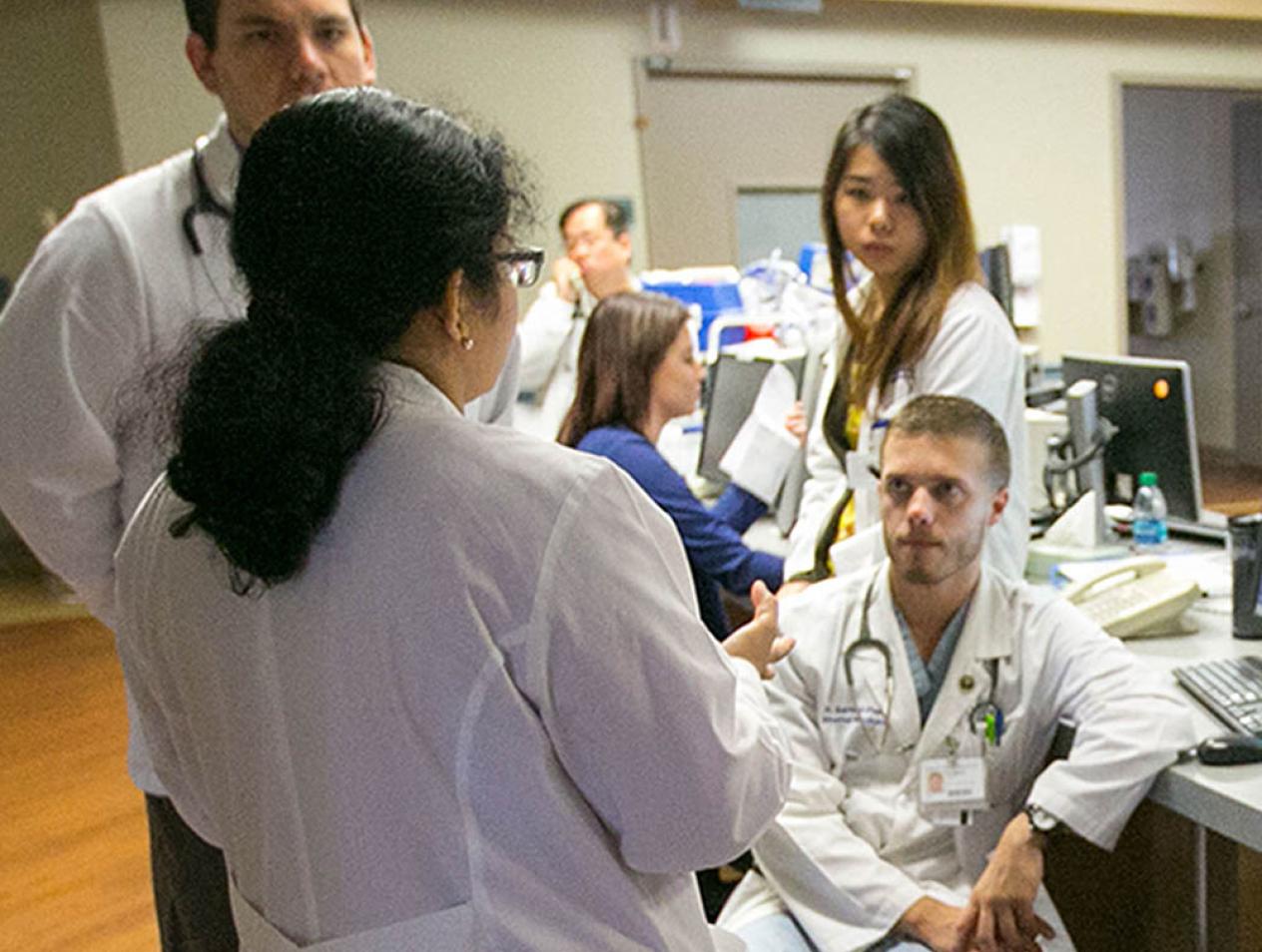Departments
Education and Research Inspired by Jesuit Values
Creighton University School of Medicine is made up of clinical and basic science departments that contribute to teaching future medical professionals and discovering the latest developments in medicine. Faculty members in each department are encouraged to work together to advance the field and promote wellness for all individuals.
School of Medicine Departments
- Anesthesiology and Perioperative Medicine: Actively involved in Creighton’s teaching mission and providing anesthesiology services to the community.
- Biomedical Sciences: Provides education and research opportunities in the medical sciences and training in research and advanced clinical anatomy through graduate programs.
- Clinical Research and Public Health: Furthering research and improving the health of the public.
- Family Medicine: Trains physicians to become patient advocates and work with diverse patient populations in any practice setting.
- Health Professions
- Medical Microbiology and Immunology: Dedicated to researching and teaching in the areas of microbial pathogenesis and host defense.
- Medical Education: Focused on development and promotion of teaching excellence within the health sciences.
- Medical Humanities: Forms well-rounded and empathetic physicians, educated in the liberal arts, and driven by Jesuit values.
- Medicine: Educates medical students, residents, fellows and other medical professionals while developing and maintaining groundbreaking research programs; encompasses 12 divisions.
- Neurology: Home to one of the best stroke programs in the nation and outstanding clinical programs known for their comprehensive neurological care.
- Neurological Surgery: Building a comprehensive academic neurosurgery program to serve the region.
- Obstetrics and Gynecology: Positively impacts women’s healthcare through education and meaningful clinical research.
- Pathology: Committed to educating professionals on the pathophysiology of human disease and utilizing this knowledge to impact patient care.
- Pediatrics: Promotes an understanding of childhood disease by educating students, physicians and the public.
- Pharmacology and Neuroscience: Conducts advanced research and teaching in pharmacology as the basis for drug discovery and experimental therapeutics.
- Psychiatry: Educates medical students, residents and fellows and provides continuing education to the medical community.
- Radiology: Prepares radiologists to advocate for patient safety in a technologically advanced field.
- Surgery: Conducts innovative surgical research and ensures exceptional education for students, residents and medical professionals; encompasses 8 divisions.
- Urology: Specializes in minimally invasive surgery such as laparoscopic urologic surgery and laser destruction of prostatic disease.
Outstanding Faculty
“Our faculty are committed to the emotional and spiritual growth of our students as they become outstanding physicians.” — Robert W. Dunlay, MD, Dean, School of Medicine
Image


















